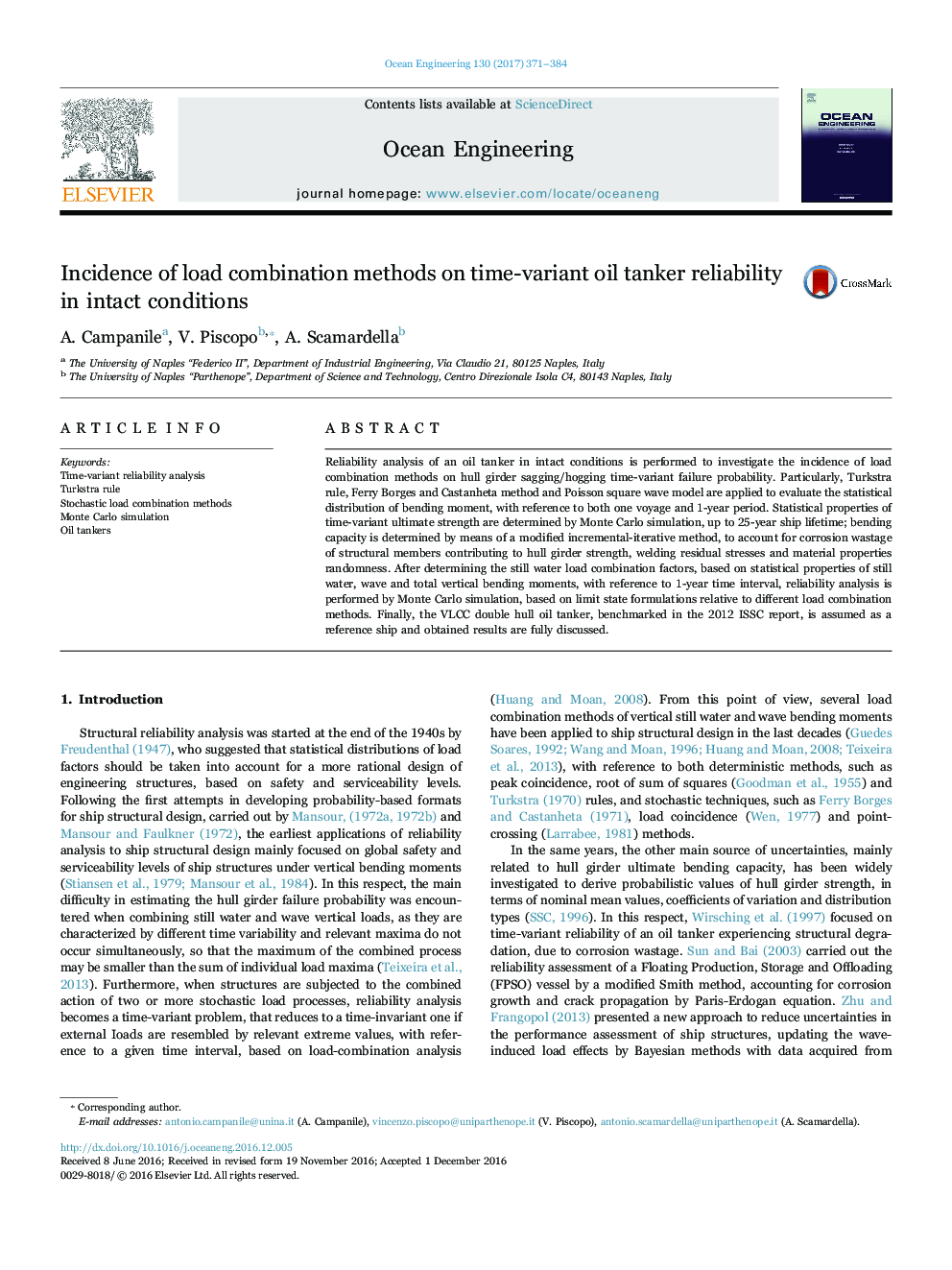| Article ID | Journal | Published Year | Pages | File Type |
|---|---|---|---|---|
| 5474637 | Ocean Engineering | 2017 | 14 Pages |
Abstract
Reliability analysis of an oil tanker in intact conditions is performed to investigate the incidence of load combination methods on hull girder sagging/hogging time-variant failure probability. Particularly, Turkstra rule, Ferry Borges and Castanheta method and Poisson square wave model are applied to evaluate the statistical distribution of bending moment, with reference to both one voyage and 1-year period. Statistical properties of time-variant ultimate strength are determined by Monte Carlo simulation, up to 25-year ship lifetime; bending capacity is determined by means of a modified incremental-iterative method, to account for corrosion wastage of structural members contributing to hull girder strength, welding residual stresses and material properties randomness. After determining the still water load combination factors, based on statistical properties of still water, wave and total vertical bending moments, with reference to 1-year time interval, reliability analysis is performed by Monte Carlo simulation, based on limit state formulations relative to different load combination methods. Finally, the VLCC double hull oil tanker, benchmarked in the 2012 ISSC report, is assumed as a reference ship and obtained results are fully discussed.
Keywords
Related Topics
Physical Sciences and Engineering
Engineering
Ocean Engineering
Authors
A. Campanile, V. Piscopo, A. Scamardella,
